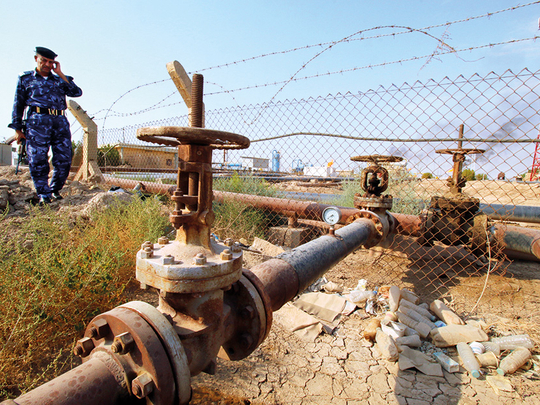
Abu Dhabi: Opec may be encouraged to extend the current deal to limit output beyond March as oil prices appreciate due to reduction in supply, analysts said.
In December last year, the Organisation of the Petroleum Exporting Countries (Opec) and other producers including Russia, Mexico and Kazakhstan, reached a deal to reduce output by about 1.8 million barrels a day to eliminate a global surplus that was depressing oil prices.
The agreement, which initially called for a six-month period, was later extended by another nine months to the end of March 2018.
“With oil prices steadily appreciating as markets become optimistic over Opec’s efforts to stabilise the markets, the group may be encouraged to extend the current deal beyond March,” Lukman Otunuga, a research analyst at FXTM told Gulf News by email.
According to secondary sources, Opec crude oil production averaged 32.76 million barrels a day in August, a decrease of 79,000 barrels a day over the previous month.
Energy ministers of Saudi Arabia and Iraq have recently said that the group is considering prolonging the deal beyond March to stabilise oil markets.
Iraqi oil minister Jabbar Al Luaibi told an energy conference in Fujairah on Tuesday that Opec and other crude producers were considering extending or even deepening a supply cut to curb a global glut and support oil prices. Saudi energy minister Khalid Al Falih also made similar comments a few weeks ago.
“An extension between three and six months is what the market is currently beginning to price in,” said Ole Hansen, head of commodity strategy at Saxo Bank.
He said extension beyond March is an absolute necessity in order to avoid another price collapse.
US shale
Brent crude futures were 1.11 per cent higher at $55.75 (Dh204.60) per barrel at around 3:40pm UAE time on Wednesday. West Texas Intermediate was trading at $50.04 barrel, up by 1.13 per cent.
“While an extension of the production cut deal and a possibility of Nigeria, Libya joining the Opec led-deal, may support prices in the short term, rising output from US shale and oversupply woes, are likely to limit upside gains,” said Otunuga.
A meeting between Opec and non Opec members is scheduled to take place on Friday with the participation of Libya and Nigeria, according to a report from Reuters.
Nigeria and Libya are likely to be in focus during Friday’s Opec meeting with the discussion around the progress of their deal to limit output.
“With both countries currently exempt from the Opec led deal to cut production, it will be interesting to see if the two nations agree to limit their output and how this will affect oil prices.”
Nigeria’s oil production rose by about 138,000 barrels per day in August, according to Opec monthly report.












